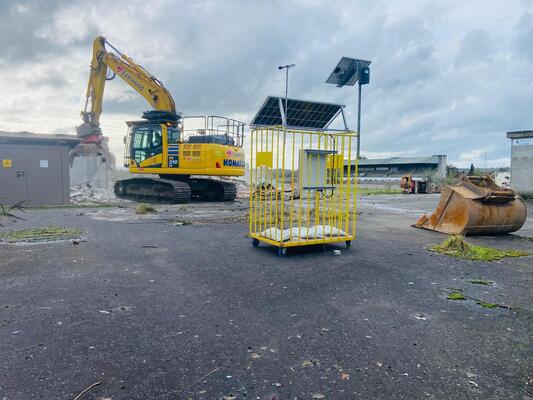IRISH language legislation is finally to be introduced at Westminster on Wednesday.
First promised by the British government in the 2006 St Andrew's Agreement, legislation was blocked by the DUP at Stormont. The New Decade New Approach agreement (January 2020) then committed parties and governments to implementing Irish language legislation within 100 days. Last year Secretary of State Brandon Lewis gave the Stormont Assembly a final deadline of September 2021 to enact the legislation, committing his own government to bringing forward legislation through Westminster by October 2021. That deadline also came and passed.
The bill will create a new office for an Irish language commissioner who will develop best practice standards for public authorities, alongside repealing the 1737 Act of Justice (Ireland) legislation which bans Irish from courts.
The news comes just days after 17,000 Gaels marched through Belfast city centre demanding rights for the language.
While welcoming the news, Irish language advocacy organisation Conradh na Gaeilge is urging caution, saying that they are "taking nothing for granted".
Paula Melvin, President of Conradh na Gaeilge, said the Irish language community has been fighting for these rights for decades and that to see the language receive official status in the North of Ireland for the first time "is indeed historic".
"We want to pay tribute to all of those activists and community pioneers who have been advocating for language rights down through the years," she said. "This day belongs to them. But let’s be clear, this is only the beginning of the legislative journey for this bill.
"Painful experience with the British Government has taught us to take nothing for granted. Until we see this Bill fully enacted and indeed implemented in practice, we will continue to push ahead with the campaign.”
Taking part in the massive Lá Dearg march in Belfast on Saturday
Conchúr Ó Muadaigh, Advocacy Manager with Conradh na Gaeilge, said: “On Saturday almost 20,000 attended the largest Irish language rally in our history. We told them then that we would win our campaign, and we are nearly there. We will have an Irish language act.
"That legislation will, however, fall short of the commitments given to us at St Andrew’s, especially when tested against the Welsh model. It remains, however, an historic advancement in our campaign for language rights and we welcome it as a significant staging post on our journey for equality here.
"The British Government know themselves that much of this legislation is dependent on political will to allow it to function effectively. Given the DUP has reneged from their New Decade New Approach commitments to deliver this legislation, coupled with the fact that we have no First or Deputy First Ministers to press ahead with implementing the functions of the legislation, the British Government must immediately act to appoint a Commissioner who can develop the best practice standards.
"That is now the immediate litmus test for the British Government. Having legislation is one thing, acting on it is the real test. Without that immediate action this legislation won’t be worth the paper it is written on.
"The Irish language revival that has been flourishing here for many decades has come from the bottom up, a movement that has been celebrated and recognised globally; with local communities choosing to live their lives through Irish and realising that local vision through founding their own schools and delivering transformational Irish language projects and services. Now is the time for the state to play their part.”






